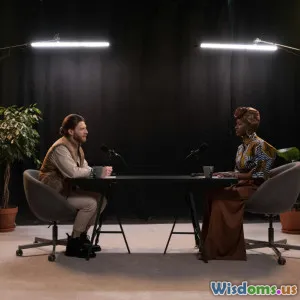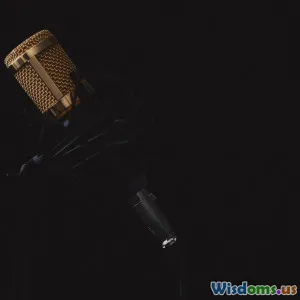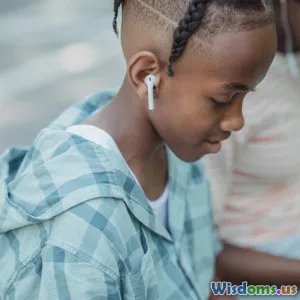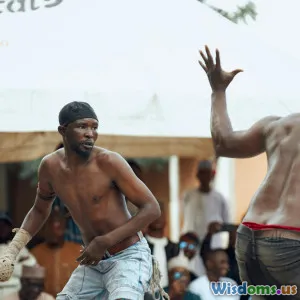
Exposing Myths About Radio Host Interviews What Really Happens On Air
8 min read Unveiling truths behind radio host interviews, debunking myths and revealing the realities of on-air dynamics. (0 Reviews)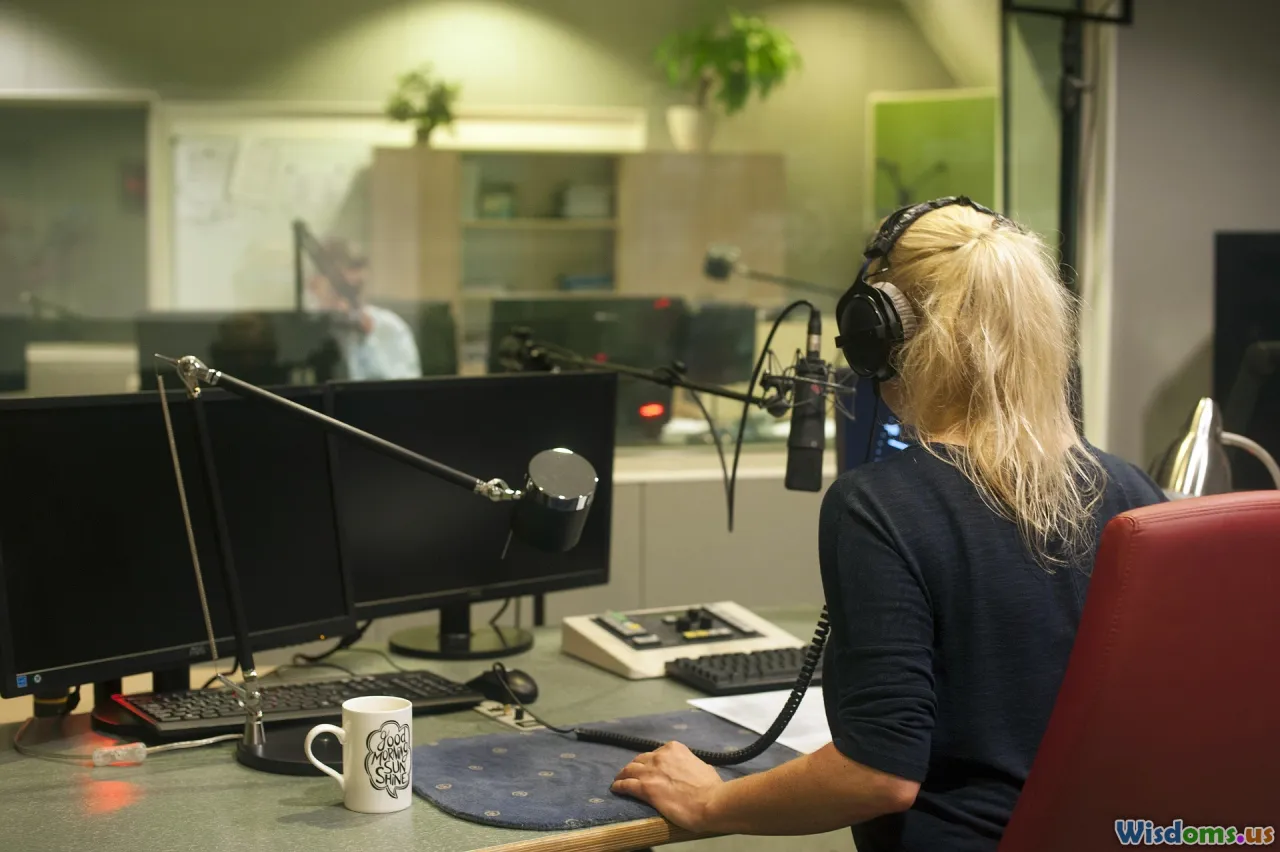
Exposing Myths About Radio Host Interviews: What Really Happens On Air
Introduction
Radio interviews have long been an engaging medium for connecting audiences with celebrities, experts, and everyday people. Yet, despite their popularity, many myths surrounding what takes place during these broadcast sessions persist. Have you ever wondered if radio interviews are entirely spontaneous or scripted, if hosts have secret agendas, or if guests have unlimited airtime? Today, we break down these myths and reveal the reality behind the studio doors.
Myth 1: Radio Interviews Are Entirely Spontaneous
The Reality of Planning and Preparation
Contrary to popular belief, radio interviews are rarely completely unrehearsed. While the feeling of spontaneity is an important part of engaging content, producers and hosts usually prepare extensively. This includes researching the guest, drafting sample questions, and outlining key topics to keep the dialogue focused and meaningful.
For example, NPR's independent producer and radio host Kerri Miller emphasizes, “While live moments do happen, much of what sounds casual is the result of hours of prep and multiple rehearsals.” This preparation ensures conversations are able to flow freely but stay on topic, avoiding awkward silences or tangents that would lose audience interest.
Use of Pre-Interview Calls and Briefings
Most hosts conduct pre-interview calls with guests. These calls serve multiple purposes: clarifying the interview's goals, discussing sensitive topics, handling any legal approvals, or briefing guests on potential live content. Such preparation fosters comfort and authenticity once the mic goes live.
Myth 2: Hosts Can Control or Manipulate the Narrative
Balancing Authenticity with Editorial Direction
There’s a persistent idea that hosts wield overarching control, twisting conversations to fit biased narratives. While producers influence the interview structure through question framing and editorial choices, ethical hosts strive to maintain integrity and journalistic standards.
According to an interview with broadcast veteran Terry Gross of "Fresh Air," a popular U.S. radio show, she states, “Our goal isn’t to manipulate but to understand and reveal aspects of a person’s experience. It’s a delicate balance between crafting a story and honoring the guest’s voice.”
The Role of Editing and Live Versus Recorded Interviews
Editing is key to shaping the final product, especially for pre-recorded shows. Content that is irrelevant, repetitive, or off-topic is trimmed to improve listener flow. However, manipulating facts or twisting answers crosses journalistic ethics.
Live interviews, on the other hand, offer less control. Some talk radio programs thrive on spontaneous, unscripted exchanges, sometimes leading to unexpected revelations or controversies. Hosts prepare for these moments but cannot predict them fully.
Myth 3: Guests Dominate the Airwaves and Can Speak Without Limits
Time Constraints and Station Policies
Many listeners imagine guests having unlimited time to air views or promote causes. In reality, most interviews have strict time limits enforced by station policies, sponsor needs, or programming slots.
For instance, at large radio networks like BBC Radio, interviews are typically capped at 10-15 minutes to accommodate varied programming. This constraint challenges hosts and guests alike to be concise and impactful.
Managing Guest Expectations
Hosts often guide guests to focus their messages, ensuring the conversation remains dynamic and relevant for the target audience. This sometimes involves interrupting for clarification or steering the dialogue back if it diverges too far.
Myth 4: On-Air Exchanges Are Entirely Unscripted
Use of Notes, Prompters, and Production Teams
Behind the scenes, hosts rarely rely solely on memory. Realtime notes, cue cards, or studio teleprompters help them keep track of talking points, transitions, and timing.
Moreover, producers monitor broadcasts, supply the host with alerts or queries via earpieces, and ensure technical quality, lending the illusion of seamless flow.
Incorporation of Audience Interaction
Many shows integrate live listener calls, texts, or social media interaction. These inputs may be queued, screened, or scheduled by producers to maintain the show's tempo and relevance.
Myth 5: Radio Interviews Are Just Chat — Not Meaningful Journalism
The Interview as a Valuable Storytelling Tool
Interviews on radio are powerful vehicles for storytelling, insight, and human connection. Unlike print or written content, radio offers immediacy, emotional resonance, and personality, which deepen audience engagement.
Scholarly studies, such as those by the Pew Research Center, highlight radio’s continuing influence, noting how interview-driven programs keep listeners informed while building empathy and social awareness.
Examples of Impactful Radio Interviews
-
John F. Kennedy’s 1960 Presidential Debate: Though televised, much was heard on radio, demonstrating how interview dialogue shapes political perceptions.
-
BBC’s Hardtalk Program: Known for probing interviews that reveal unknown facets of public figures, influencing public discourse.
-
StoryCorps Interviews: Everyday people sharing personal narratives have been pivotal in archiving cultural memories.
Behind the Mic: What Happens Off-Air?
Technical Set-Up and Sound Checks
Long before the broadcast begins, sound engineers adjust audio levels, check for interference, and test microphones. A well-set stage ensures listener experience is immersive.
The Role of Producers and Staff
Producers coordinate logistics, book guests, develop questions, and manage time. They also act as real-time strategists, guiding hosts through unexpected changes like guest delays or breaking news.
Emotional Preparation for Hosts and Guests
Radio interviews require emotional intelligence. Hosts balance curiosity with sensitivity, managing nerves of first-time guests, and navigating delicate topics without alienation.
Conclusion: The Myth and the Magic
The mystique of live radio interviews melds raw human emotion with careful craftsmanship. While myths paint the process as either entirely scripted or completely spontaneous, the reality is nuanced — a blend of preparation, skill, and genuine engagement.
Understanding these dynamics enriches listeners’ appreciation of what unfolds between those radio waves. The next time you tune in, remember: each broadcast is a product of meticulous planning and heartfelt conversation, connecting voices across time and space.
Unlocking the truth about radio host interviews not only demystifies the medium but also inspires a deeper appreciation for the powerful narratives they deliver.
Rate the Post
User Reviews
Popular Posts











